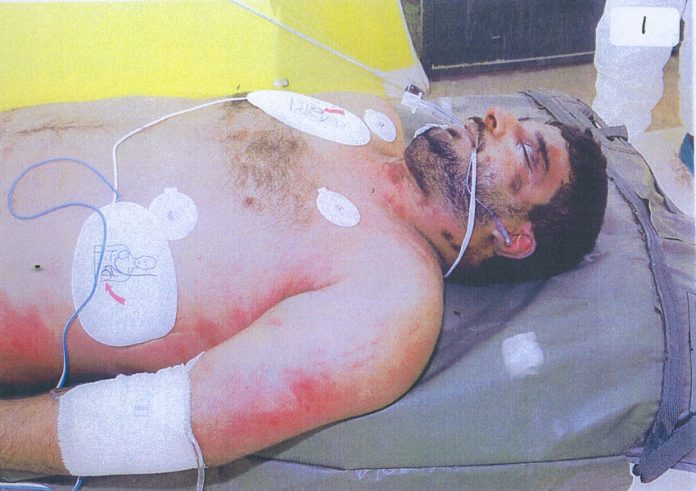
THE Al-Sweady inquiry into allegations that more than 20 civilians were captured, tortured and unlawfully killed by British soldiers in Iraq in 2004, following the so-called ‘Battle of Danny Boy’, resumed yesterday.
The inquiry is named after 19-year-old Hamid al-Sweady, who was allegedly tortured and hanged by British troops.
Appearing at the inquiry yesterday, British officer Col Adam Griffiths denied UK forces mutilated the dead bodies of Iraqis.
Col Griffiths, then a major, claimed he received an order to take the dead bodies of some of those killed in the fighting back to a base.
He said he initially questioned the order as it was ‘highly unusual’, but, he claimed, ‘we just did it because there must have been a reason for it.’
Earlier this year, Khuder Al-Sweady told the inquiry that his nephew Hamid’s body had a boot-shaped bruise on the forehead, a broken arm, bullet wounds and signs of hanging.
The Battle of Danny Boy in May 2004 was named after a British checkpoint in southern Iraq. The British army claims that the dead bodies were taken back to base to try to identify a man thought to be involved in the murder of six military policemen the year before.
But lawyers for families of the dead Iraqis insist they were taken alive and subsequently tortured and killed at Camp Abu Naji (CAN) and Shaibah Logistics Base.
The inquiry is the second investigation into the claims, after an earlier Royal Military Police inquiry was deemed inadequate by High Court judges.
Khuder Al-Sweady fought a long legal battle to have a public inquiry into the alleged mistreatment and unlawful killings of Iraqis at CAN on 14-15 May 2004, after fighting had finished.
In his witness statement he said that his nephew’s injuries included bullet holes, ‘signs of torture on his chest’, and ‘bruises by a boot to his forehead. I would say that the primary cause of death was hanging and torture.’
The inquiry was told Khuder al-Sweady and others went and searched the area on 14 May after hearing about the battle. The next day he and other relatives went to CAN, where they saw dead bodies being handed over. They then travelled to the Al-Sadr Hospital, where they saw the body bags being opened.
He described an ‘inhuman catastrophe’ with injuries including bullet wounds, missing eyes and, in one case, missing genitals. He wrote the names of some of those he could identify on their body bags, but some were too disfigured.
John Dickinson, solicitor with Public Interest Lawyers representing the families of the Iraqi victims, told News Line yesterday: ‘We look forward to exploring the evidence from the military witnesses, including the allegations made by the Iraqi witnesses.’ He said that the inquiry is set to sit for four days a week and is likely to run on until Christmas.